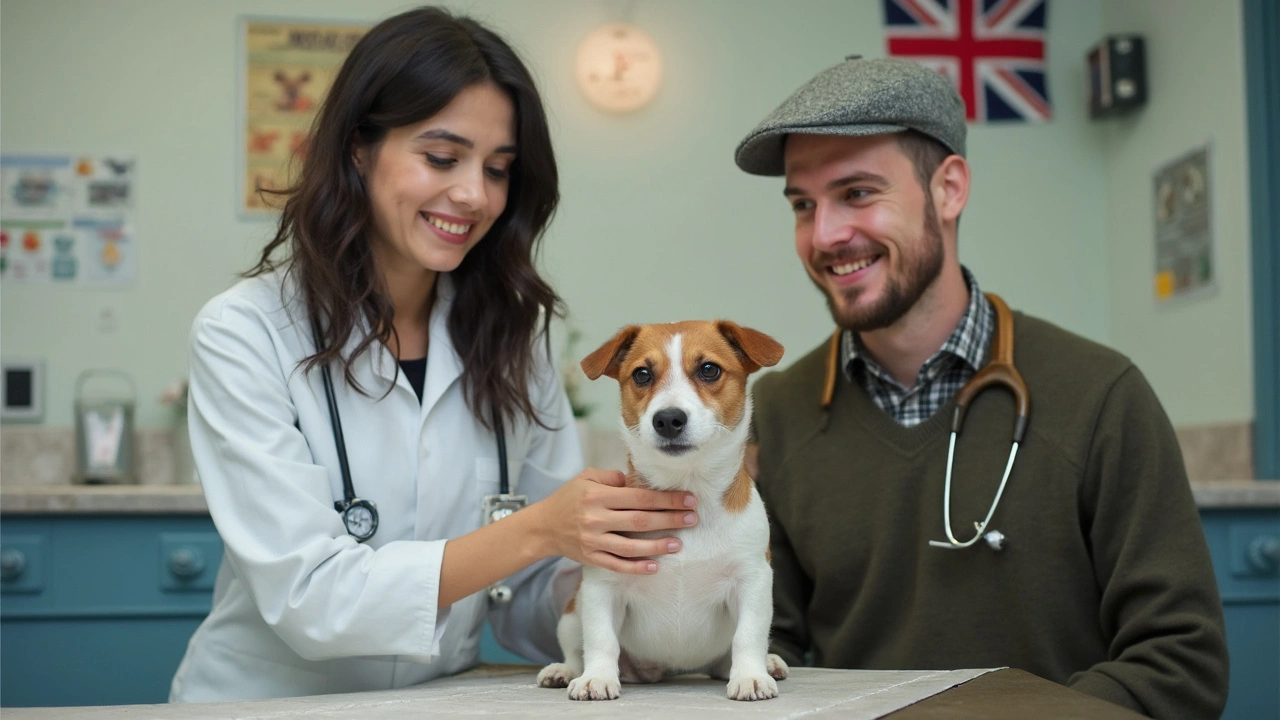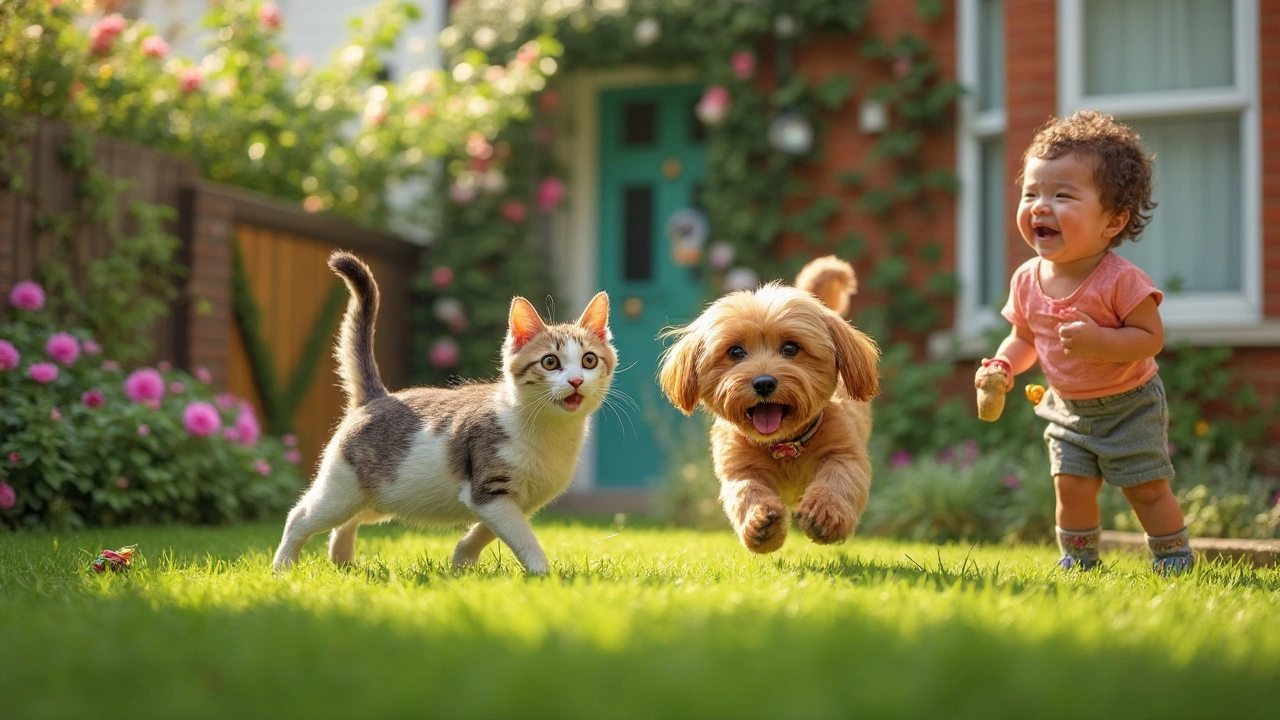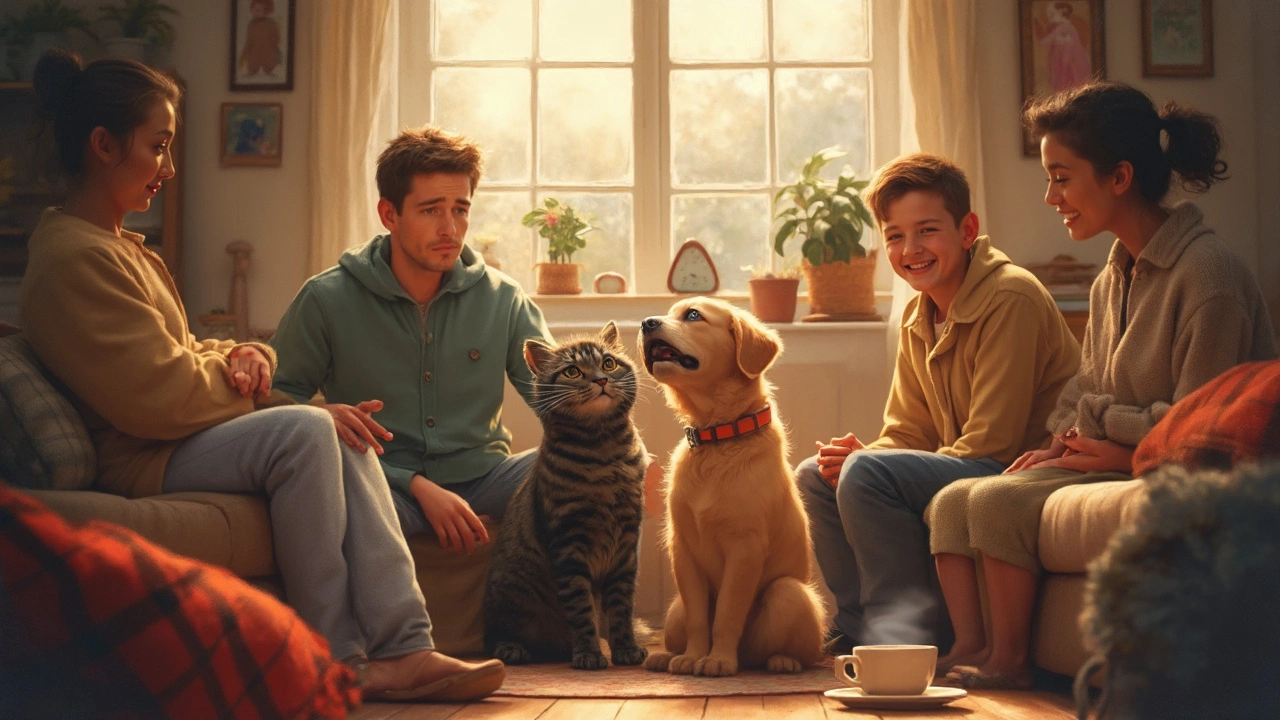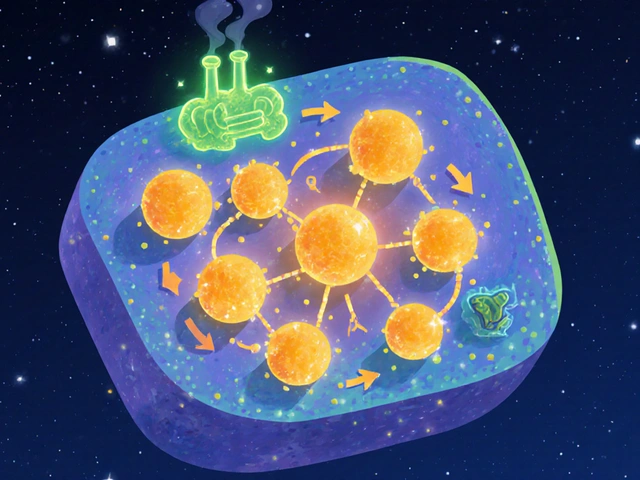Ever watched your puppy or kitten freeze, then make a strange little hic sound over and over? Pet hiccups happen more often than most owners realize, and they can look a bit weird or even funny. But when your furry friend starts hiccuping, it's natural to wonder if something's wrong or if you should do something about it.
The good news is, most of the time, hiccups in pets are totally harmless—just like they are in humans. They usually show up when your dog or cat eats too fast, gets a little too worked up playing, or even just because they're growing. Puppies and kittens get them the most, but adult pets aren’t immune.
Sometimes, though, hiccups can point to something more. If your pet’s hiccups last hours, come with coughing, drooling, or struggling to breathe, that’s your cue to call the vet. Most cases won’t get nearly that serious, but knowing what to watch for will save you stress.
- What Are Hiccups in Pets?
- What Causes Hiccups in Dogs and Cats?
- How to Tell If Hiccups Are Serious
- Treating Hiccups at Home
- Preventing Hiccups in Your Pet
What Are Hiccups in Pets?
Hiccups in pets look a lot like hiccups in people. That weird, sudden spasm? It’s actually your pet’s diaphragm—the thin muscle under their lungs—twitching. These spasms make your dog or cat do those quick, odd little breaths or noises that can catch you by surprise.
So why do they happen? Just like in humans, pet hiccups are basically a reflex. When the diaphragm contracts by mistake, air rushes into the lungs fast, making the vocal cords snap shut. That’s where the hic sound comes from. You’ll usually see this in puppies and kittens who are still growing and learning how to control all their muscles.
As for what it looks like, you might spot:
- Repeated, sharp little breaths or soft "burps"
- A tiny chest or belly jerk every second or so
- Your pet pausing and looking confused, but acting normal otherwise
Sometimes dog hiccups or cat hiccups are so mild you barely notice them, while other times your pet might stop playing just to let out a series of hiccup sounds. Most pet owners will see hiccups more often in young animals, especially during the first year.
According to a 2022 vet survey, about 45% of dog owners said they’d noticed hiccups in their pets at least once, while only 10% reported seeing them in adult dogs. It drops even more with adult cats. That’s because as pets grow up, their bodies just get better at controlling these reflexes.
What Causes Hiccups in Dogs and Cats?
Hiccups in dogs and cats start the same way as in people—a spasm in the diaphragm, the muscle that helps with breathing. These spasms make that classic “hic” sound, sometimes followed by a little jump in your pet’s belly.
Here’s what typically triggers pet hiccups:
- Eating too quickly: Devouring food too fast can cause pets to swallow extra air, which irritates the diaphragm.
- Excitement and play: Puppies and kittens get so worked up when playing that their breathing gets irregular, which can set off hiccups.
- Changes in temperature: Drinking very cold water or eating something warm right after can confuse the diaphragm and bring on hiccups.
- Stress or anxiety: Loud noises, new places, or even meeting new people can make pets anxious and cause weird breathing patterns that trigger hiccups.
- Growth and development: Young pets’ nervous systems are still maturing. That’s why hiccups are common in puppies and kittens for the first few months.
The age factor is especially obvious—most hiccup episodes show up in pets under a year old, then fade out as they grow. There’s no real evidence that certain breeds get hiccups more than others, but smaller dogs and kittens do seem to hiccup slightly more than larger breeds, probably because they gulp air faster.
As weird as it sounds, indigestion or a sensitive tummy can sometimes link to cat hiccups or dog hiccups. If your pet ate grass, chewed something odd, or tried a new treat, that can sometimes set things off too.
| Trigger | More Likely In |
|---|---|
| Fast eating/drinking | Puppies, Kittens |
| Play excitement | All ages (especially young) |
| Temperature swings in food/drink | All pets |
| Stress/Anxiety | Cats, some dogs |
Bottom line: if you notice dog hiccups or cat hiccups popping up, think about how fast they’re eating, how much they’re playing, or if there’s anything new in their routine. Most of the time, the cause is right there—and usually nothing to worry about.

How to Tell If Hiccups Are Serious
Most pet hiccups wear off almost as soon as they come, but sometimes there’s more going on than meets the eye. The big question—how can you tell when your pet’s hiccups are nothing or when you should actually worry?
Start by timing how long the dog hiccups or cat hiccups last. Anything under 15 minutes is usually no big deal. But if your dog or cat’s hiccups keep going nonstop for over an hour, it’s time to pay attention. Another red flag: if the hiccups show up a lot, come back day after day, or seem to get worse with time.
Watch for extra signs besides hiccuping. Here’s what signals a trip to the vet:
- Difficulty breathing or rapid, shallow breaths
- Persistent coughing or choking noises
- Unusual drooling or foaming at the mouth
- Your pet seems super tired or lethargic during or after hiccups
- Lack of appetite or vomiting
Any of these, paired with regular hiccups, could mean there’s something more serious going on (like respiratory problems or even stomach issues). No one likes to panic, but it’s better to be safe, especially with young pets or older animals.
Sometimes hiccup-like sounds could actually be signs of other problems like reverse sneezing (especially in small dogs) or coughing up hairballs (pretty common in cats). If you see anything that feels "off" along with the pet hiccups, don’t just brush it off—hit up your vet for advice.
| Hiccup Sign | Action Needed |
|---|---|
| Hiccups last less than 15 minutes | Usually harmless, no action needed |
| Hiccups with troubled breathing | Call the vet right away |
| Hiccups with vomiting or lethargy | Call the vet soon |
| Hiccups lasting over 1 hour | Monitor closely, contact vet |
If in doubt, trust your gut. You know your pet’s normal better than anyone else. When their behavior feels off or the hiccups just seem strange, it’s always smart to check with a professional.
Treating Hiccups at Home
When your pet starts making those odd little hic sounds, don’t panic. Most pet hiccups go away on their own and don’t hurt your furry buddy at all. But if you want to help them out, there are simple things you can try at home.
- Stay Calm: Pets can sense your stress. Keep things chill, which helps them relax too.
- Water Works: Offer your dog or cat a bit of fresh water. Sipping can help reset their breathing pattern and smooth things out.
- Slow Down Feeding: If your puppy or kitty eats super fast, use a slow-feeder bowl or spread food on a cookie sheet. This can prevent gulping air, which often causes dog hiccups and cat hiccups.
- Gentle Belly Rub: Sometimes a soft belly massage helps relax the diaphragm, which usually quiets down the hiccups.
If you’ve got a young pet, remember that puppies and kittens get hiccups more than older animals. According to Dr. Sarah Wooten, DVM, “Hiccups are usually nothing to worry about in puppies and kittens—they often grow out of it as their bodies mature.”
“Most pet hiccups last only a few minutes, and they’re rarely a sign of anything serious. If your pet seems otherwise normal, you can safely watch and wait.” – Dr. Sarah Wooten, DVM
If your pet’s hiccups go on for more than an hour, or if you see stuff like heavy drooling, coughing, wheezing, or struggling to breathe, call your vet. Otherwise, these simple steps usually do the trick. Always focus on keeping things relaxed and comfortable for your pet during a bout of pet hiccups.

Preventing Hiccups in Your Pet
Turns out, stopping pet hiccups starts with a few simple tweaks to your routine. The most common trigger is eating or drinking way too fast. When animals gulp down food or water, air can sneak in and mess with their diaphragm, causing those mini spasms we call hiccups. This means mealtime is the first place to look for solutions.
- Slow down eating and drinking. If your dog or cat acts like every meal is a race, get a slow feeder bowl or spread out their food on a flat surface. You can even split up their food into smaller, more frequent servings. For water, use a bowl that's just big enough for them to lap comfortably.
- Pick the right food. Dry kibble sometimes makes pets swallow more air. Mixing in a little wet food or water can help. Keep treats small and easy to chew, too.
- Chill out before feeding. Excitement and heavy play right before a meal can make hiccups more likely. Let your pet calm down with a bit of quiet time before eating.
Stress and sudden changes can also play a part. Pets pick up on our mood, visitors, even rearranged furniture. So keeping things predictable and cozy at home will lower their chance of getting dog hiccups or cat hiccups.
“Slower, calmer feedings make a world of difference in preventing hiccups, especially for puppies and kittens,” says Dr. Christine Cain, professor of veterinary medicine at the University of Pennsylvania.
Treating underlying medical problems helps, too. If your pet keeps getting hiccups, especially as an adult, it might be time for a vet check just to rule out asthma, digestive issues, or allergies. Most of the time, though, just making small changes at home will keep hiccups out of the picture.
Here’s a quick look at things that help and don’t help when it comes to avoiding pet hiccups:
| What Helps | What Doesn't Help |
|---|---|
| Slow feeders, calm eating time, smaller portions, mixing wet food | Letting pets gulp food, rough play right before meals, skipping meals |



Robert Urban
28 April / 2025A slow‑feeder bowl usually stops the hiccup marathon.